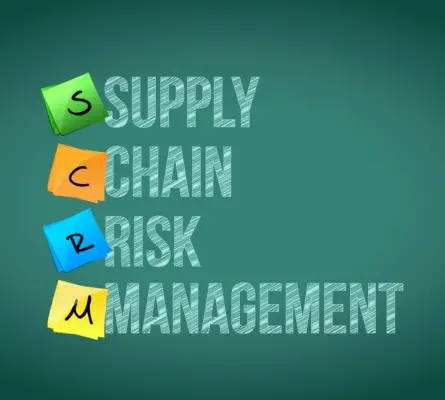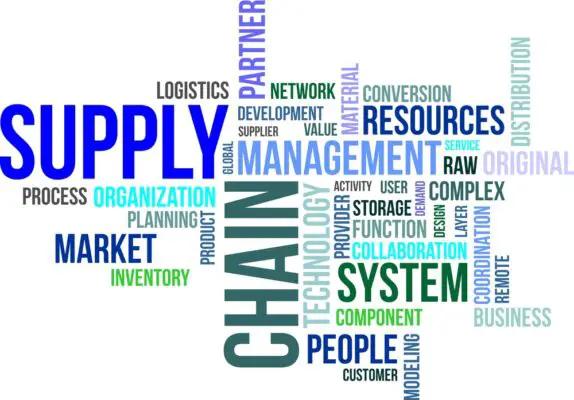Supply chain project managers play a crucial role in overseeing and managing the entire lifecycle of supply chain projects. They are responsible for ensuring the efficient and timely delivery of goods and services, optimizing processes, and minimizing costs.
This involves creating project plans, setting deadlines, coordinating with various stakeholders, and monitoring progress. Supply chain project managers must also have strong analytical and problem-solving skills, as they often need to identify and address any bottlenecks or issues that may arise during the project.
Additionally, they must stay updated on industry trends and advancements to improve supply chain operations continuously.
In today’s complex and global business landscape, supply chain project managers play a critical role in ensuring the timely and efficient delivery of goods and services.
This article explores the supply chain project manager jobs, shedding light on the responsibilities, skills, and knowledge required to succeed in this demanding profession.
Whether you are an aspiring professional or a seasoned veteran, this article offers valuable insights into the dynamic and rewarding field of supply chain project management.

What is a Supply Chain Project Manager?
A Supply Chain Project Manager oversees and manages an organization’s supply chain process. They coordinate and ensure the smooth flow of goods and services, from the procurement of raw materials to the delivery of finished products to customers.
This role requires strong organizational and communication skills and a deep understanding of supply chain management principles and best practices.
Job Description
Managing the end-to-end supply chain process and ensuring seamless project execution are key responsibilities outlined in the supply chain project manager job description.
Supply chain project managers oversee the planning, implementation, and execution of supply chain projects within companies.
They work closely with their team to develop and execute strategies to improve the supply chain process and optimize the flow of products from suppliers to customers.
These professionals are skilled in supply chain management, manufacturing, and logistics and deeply understand the complexities of supply chain operations.
Supply chain project managers are also crucial in implementing and managing supply chain programs and initiatives to meet the company’s goals and objectives.
Their job is to ensure that the supply chain operates efficiently and effectively to meet the company’s supply needs.
Qualifications and Requirements
A strong supply chain management background and a comprehensive understanding of logistics is essential for anyone aspiring to be a supply chain project manager.
The field of supply chain management is an intricate and complex one, requiring professionals to possess a diverse set of skills and knowledge.
To successfully manage projects in this field, individuals must meet certain requirements and qualifications. Some of these include:
- A degree in supply chain management or a related field.
- Experience in project management, with a focus on supply chain projects.
- The ability to assess and manage risks associated with supply chain projects.
- Strong communication skills to effectively coordinate with customers, suppliers, and other stakeholders.
- Knowledge of material costs and the ability to optimize supply chain processes.
Education and Experience
Education and experience are crucial factors for success in the field of supply chain project management. A bachelor’s degree in supply chain management or a related field is often required, with some employers preferring candidates with a master’s degree.
Additionally, professional certifications such as the Certified Supply Chain Professional (CSCP) or Project Management Professional (PMP) can enhance one’s qualifications for these roles.
Relevant work experience, particularly in project management or within the supply chain industry, is highly valued and can demonstrate the practical skills and knowledge necessary for this demanding role.
Degrees for Supply Chain Project Managers
Many industry professionals believe obtaining a relevant degree is essential for aspiring supply chain project managers to enhance their career prospects.
A degree in supply chain management or a related field equips individuals with the necessary knowledge and skills to excel in this role. Here are some reasons why a degree is important for supply chain project managers:
- Increased job opportunities: Having a degree in supply chain management increases the chances of landing a job as a project manager in this field.
- Competitive advantage: Employers often prioritize candidates with relevant degrees, as it demonstrates a commitment to the profession and a solid foundation of knowledge.
- Enhanced skill set: A degree program provides comprehensive training in logistics, operations management, and strategic planning, which are crucial for success in supply chain project management.
Professional Certifications
Undoubtedly, professional certifications play a crucial role in validating the expertise and competence of supply chain project managers.
These certifications demonstrate the individual’s knowledge and skills, enhancing their credibility in the field.
Supply chain project managers are responsible for overseeing complex projects that involve various risks and stakeholders.
They need to have a deep understanding of supply chain processes and the ability to develop effective mitigation plans. Additionally, they must possess strong communication skills to collaborate with cross-functional teams and ensure smooth project execution effectively.
Professional certifications in supply chain management provide a comprehensive understanding of business processes, engineering principles, and project management techniques.
They also validate the manager’s supply chain experience and ability to handle modern supply chains’ complexities.
Professional certifications are an essential requirement for supply chain project managers to excel in their roles and contribute to the success of their organizations.
Relevant Work Experience
Having extensive work experience in supply chain management is essential for aspiring supply chain project managers. It enables them to apply theoretical knowledge to real-world scenarios and make informed decisions.
Some of the key benefits of having relevant work experience include:
- Inventory and Contract Management: Work experience in supply chain management allows professionals to understand inventory management techniques and contract negotiation skills, which are vital for effective supply chain project management.
- Operations Management: Practical experience in operations management helps supply chain project managers optimize processes, improve efficiency, and reduce costs.
- Collaboration with Supply Chain Analysts: Working with supply chain analysts provides valuable insights into data analysis and forecasting, enabling project managers to make data-driven decisions.
- Product Introduction: Experience in product introduction and launch helps project managers understand the challenges and requirements of bringing new products to market.
Work experience in supply chain management equips aspiring project managers with the necessary management, organizational, and problem-solving skills required for the successful execution of supply chain projects.

Skills and Knowledge Needed to Succeed as a Supply Chain Project Manager
Individuals must deeply understand the supply chain industry and business processes to succeed as a Supply Chain Project Manager.
Effective communication skills are also crucial, as the role requires constant interaction with team members, stakeholders, and clients.
Additionally, strong leadership and management skills and the ability to solve problems efficiently are essential for successfully managing complex projects in this field.
Understanding of the Supply Chain Industry and Business Processes
A comprehensive understanding of the intricate supply chain industry and its complex business processes is essential for success as a supply chain project manager.
This understanding allows project managers to effectively identify and mitigate project risks, streamline processes, and drive process improvements. It also enables them to identify and implement innovative supply chain solutions to improve efficiency, reduce costs, and enhance customer satisfaction.
Understanding the supply chain industry and its business processes, supply chain project managers can effectively collaborate with various stakeholders within the broader supply chain organization, including suppliers, manufacturers, distributors, and retailers.
Furthermore, this knowledge allows project managers to leverage analytics for supply chain optimization, enabling them to make data-driven decisions and achieve better outcomes in their supply chain management jobs.
Understanding the supply chain industry and its business processes can increase efficiency and cost savings.
Effective collaboration with broader supply chain organization stakeholders can enhance overall supply chain management.
Communication Skills
Effectively communicating with stakeholders and fostering strong relationships is crucial for success as a supply chain project manager.
This includes working closely with suppliers, logistics providers, and internal teams to meet organizational goals. Additionally, project managers must have the ability to communicate effectively with plant managers and employees to align plant activities with project objectives.
Establishing clear lines of communication and maintaining open dialogue, supply chain project managers can ensure that all stakeholders are on the same page and working towards common goals, resulting in successful project outcomes.
Communication skills play a vital role in managing supply chain projects. Project managers must effectively convey various stakeholders’ information, expectations, and goals. By doing so, they can ensure efficient coordination and collaboration.
Leadership Abilities and Management Skills
Supply chain project managers must have leadership and management skills to drive teams and effectively achieve project goals.
In the dynamic world of supply chain project manager jobs, staying ahead of industry trends and developments is crucial to maintaining a competitive advantage.
Effective leadership abilities enable project managers to navigate complex issues and ensure smooth stakeholder coordination.
On the other hand, strong management skills help efficiently allocate resources, monitor progress, and achieve financial metrics.
- Increased efficiency and productivity lead to job satisfaction.
- Recognition and rewards for successful project completion.
- Frustration due to lack of clear communication with stakeholders.
- Unexpected challenges and tight deadlines cause stress.
Problem-Solving Skills
To excel as a supply chain project manager, it is imperative to possess strong problem-solving skills that enable efficient resolution of complex issues and effective decision-making.
In the fast-paced and dynamic supply chain industry, problems can arise from various sources, such as quality issues, raw material shortages, or customer satisfaction concerns.
A skilled project manager must be able to identify the root cause of the problem, analyze the available data, and develop effective solutions that minimize disruption to the supply chain. They must also collaborate with key stakeholders across different industries to ensure a smooth flow of materials and products.
As subject matter experts, supply chain project managers are crucial in managing complex projects and driving digital transformation initiatives to enhance efficiency and competitiveness.
Job Responsibilities of a Supply Chain Project Manager
As a supply chain project manager, it is your responsibility to:
- Develop and implement strategies that improve efficiency, quality, cost reduction, delivery times, and other key performance indicators.
- Maintain effective communication and collaboration among cross-functional teams to ensure goals are achieved.
These responsibilities require:
- Strong leadership skills.
- Problem-solving skills.
- The ability to adapt and make informed decisions in a fast-paced and dynamic environment.
Developing Strategies for Efficiency, Quality, Cost Reduction, Delivery Times, etc.
How can we develop strategies to improve efficiency, quality, cost reduction, and delivery times in our supply chain operations? As a supply chain project manager, it is crucial to develop effective strategies that optimize various aspects of the supply chain. Here are some key strategies to consider:
- Streamline procurement processes:
- Collaborate with the procurement team to identify opportunities for cost reduction and improved supplier relationships.
- Implement electronic procurement systems to automate and expedite purchasing activities.
- Enhance inventory management:
- Implement real-time tracking systems to minimize stockouts and excess inventory.
- Optimize inventory transactions to reduce lead times and improve order fulfillment.
Maintaining Cross-Functional Teams to Achieve Goals
The successful achievement of goals in supply chain projects heavily relies on the ability of a supply chain project manager to maintain cohesive and collaborative cross-functional teams.
These teams are composed of individuals from different departments and areas of expertise working together towards a common goal. To emphasize the importance of maintaining cross-functional teams, let’s take a look at the following table:
| Cities | Companies |
|---|---|
| Boston | Vertex Pharmaceuticals |
| Seattle | Amazon |
| San Francisco | Apple |
| Dallas | Exxon Mobil |
As a supply chain project manager, ensuring these teams function effectively and efficiently is crucial. This can be done by fostering open communication, encouraging teamwork, and resolving conflicts in a timely manner.
Supplier chain project managers can maintain cross-functional teams and create an environment where ideas are shared, problems are solved, and goals are achieved.
With their broad supply chain experience and expertise in SCM program management, they can ensure that all aspects of a project are efficiently coordinated, from sourcing materials to delivering finished products.
Whether in a manufacturing facility or a distribution center, maintaining cross-functional teams is essential for supply chain project managers to achieve their goals.
Visit supply chain management websites for supply chain project manager job alerts in the United States.
Frequently Asked Questions
What Is the Average Salary Range for Supply Chain Project Managers?
The average salary range for supply chain project managers varies depending on factors such as location, industry, and level of experience.
However, it typically falls between $80,000 and $120,000 per year.
Are There Any Certifications or Professional Development Courses That Can Enhance a Supply Chain Project Manager’s Career?
There are several certifications and professional development courses available that can enhance a supply chain project manager’s career.
These programs provide specialized knowledge and skills to help professionals excel in their roles and advance their careers.
How Does the Role of a Supply Chain Project Manager Differ From That of a Supply Chain Manager?
The role of a supply chain project manager differs from that of a supply chain manager in that the former is primarily responsible for overseeing and executing specific projects within the supply chain, while the latter has a broader scope of managing the entire supply chain operations.
What Are Some Common Challenges Supply Chain Project Managers Face in Their Day-To-Day Work?
Some common challenges supply chain project managers face in their day-to-day work include managing multiple stakeholders, coordinating complex logistics, ensuring on-time delivery, mitigating risk, and adapting to changing market conditions.
Are Any Specific Industries or Sectors Where Supply Chain Project Managers Are in High Demand?
There is a high demand for supply chain project managers in various industries and sectors due to the increasing complexity of supply chain operations.
These professionals are sought after for their expertise in managing complex logistics and ensuring efficient operations.

Conclusion
In conclusion, a supply chain project manager plays a crucial role in ensuring an organization’s smooth and efficient flow of goods and services. With the right education, experience, skills, and knowledge, they can effectively coordinate and manage various aspects of the supply chain process.
Their responsibilities encompass planning, organizing, and executing projects to optimize supply chain operations and drive business success.

Chris Ekai is a Risk Management expert with over 10 years of experience in the field. He has a Master’s(MSc) degree in Risk Management from University of Portsmouth and is a CPA and Finance professional. He currently works as a Content Manager at Risk Publishing, writing about Enterprise Risk Management, Business Continuity Management and Project Management.

